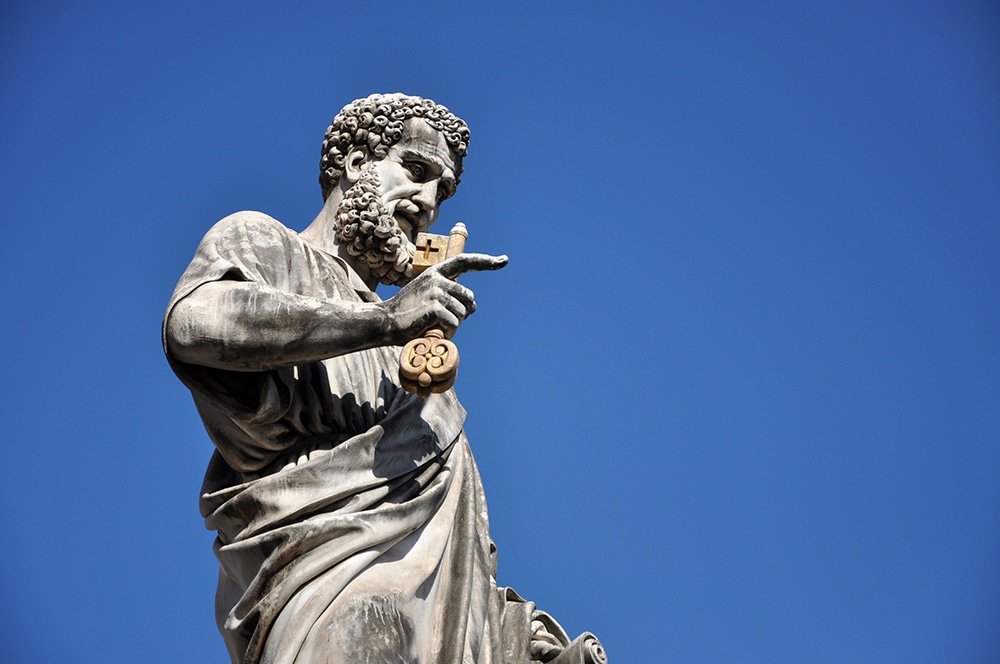
And yet, God’s election is even more splendid than our general call to holiness. Not only are we elected to baptism, but we also receive a call from God by which we may pursue holiness through a concrete form of life.
| August 23 – Twenty-first Sunday in Ordinary Time |
|---|
|
Is 22:19-23
Ps 138:1-2, 2-3, 6, 8
Rom 11:33-36
Mt 16:13-20
|
This particular election may come, as it does for Peter, like a lightning bolt from the sky. Jesus asks the disciples a question, what are people saying about me? Who do they think I am?
Peter professes faith in Jesus as the Christ, the anointed one, the Son of God.
Jesus praises Simon Peter, not because of his remarkable insight. The Father has revealed to Peter the identity of Christ, and now Simon will be known as Peter. He will be the rock on which the Church is built. Peter will receive the keys to the kingdom, the authority to govern the Church.
Peter is not worthy of his election.
We know this, even better than Peter does at this moment in the Gospel. Peter is the one who will betray Christ, denying him three times at his crucifixion.
But this is another dimension of God’s election, which is distinct from our contemporary one. Those who are elected to public office often view it as a personal achievement. I have been elected because I have earned this through hard work.
God does not elect in this way. God often chooses those who are surprisingly unqualified for their mission. Abraham is a nobody, but he will be the father of many nations. Moses stutters, but he must speak the divine Word to Israel. David is the youngest son, not especially strong or powerful, and yet he will become the great king.
God’s election of Peter, and his election of all of us, remains a mystery. This is because election, for God, is an act of love. Love comes as a gift, not as something earned. And God delights not just in humanity in general, but in us as particular persons. God loves us in the concrete, calls us to the particular.
Peter is beloved by Jesus not in the abstract but in all his impetuous particularity. He is bestowed with the gift of his office because he knows who Jesus Christ is, the anointed one. He will know this more fully when Jesus is crucified, raised from the dead, ascended into heaven, seated at the right hand of the Father, and has sent the Holy Spirit upon the Church on that Pentecost morn.
Peter is elected by Christ, and so are we! As St. Paul cries out in wonder, “Oh, the depth of the riches and wisdom and knowledge of God” (Rom 11:33).
Peter’s election reveals at least the pattern of our own. Vocation is not something we look around for as if God has hidden a message through a variety of strange signs.
Peter is called when he professes faith in Christ. If we are to know our call, we must profess faith in Christ as the anointed one, the Son of God. The mystery is not first and foremost a task of self-discovery, the construction of pro and con lists.
Rather, it is opening a space in our hearts to receive this call from the God who is love, and thus gives and gives.
Timothy P. O’Malley, Ph.D., is the director of education at the McGrath Institute for Church Life at the University of Notre Dame.





